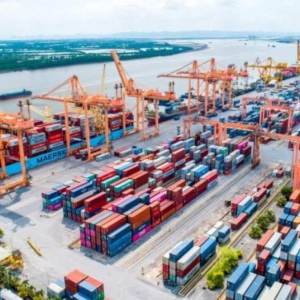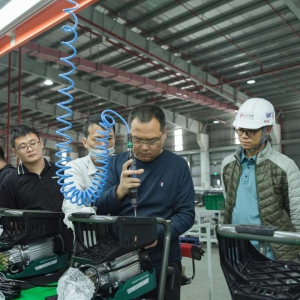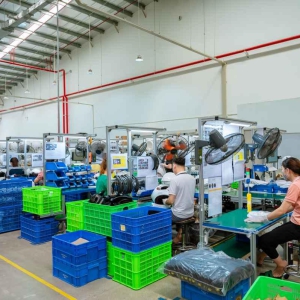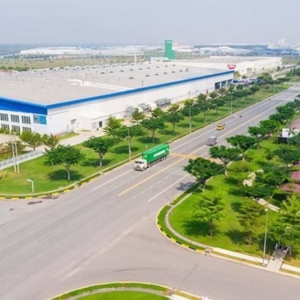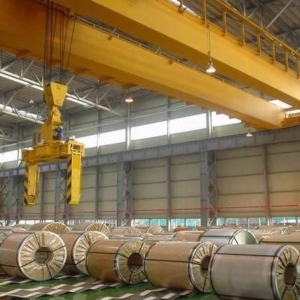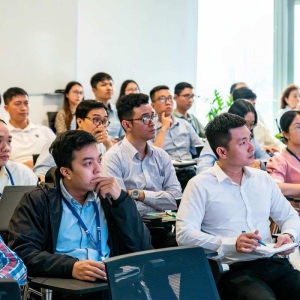New tax gives Vietnam incentive to adjust
March 31, 2023 09:42 AM
Businesses in Vietnam want preparations to be intensified for the upcoming introduction of a global minimum corporate tax rate.
At the Vietnam Business Forum (VBF) at both technical and high-level sessions held over a week ago in Hanoi, a consistent message was urged about ensuring the harmonization of state and business interests, as well as the protection of investor confidence.
The previous month, the Organisation for Economic Co-operation and Development unveiled technical guidance for its far-reaching reform of the global tax system, in which multinational companies would be subject to a global minimum tax (GMT) of 15 percent on their profits. Multinationals involved would have to generate at least €750 million ($807.7 million) in consolidated revenue – and some of them are major investors in Vietnam.
A representative of the European Chamber of Commerce in Vietnam at the VBF said, “The Vietnamese government should study what impact the GMT would have on investors and the business environment, and provide practical, effective, and timely solutions to compensate enterprises whose corporate income tax (CIT) incentives are less favorable or become ineffective due to the adoption of the GMT.”
Speaking for the American equivalent (AmCham), chairman Greg Testerman said that multinationals operating in Vietnam, as well as Vietnamese corporations with overseas investments, are concerned about the impacts of the GMT.
“Specifically, they are worried whether the introduction of the GMT would result in any reduction or loss of tax incentives that these enterprises have been enjoying under the prevailing regulations. They also wonder if the Vietnamese government will provide compensation if the CIT incentives are less favorable as a consequence of adopting the GMT,” Testerman said.

New tax gives Vietnam incentive to adjust, illustration photo
Last week, the Ministry of Planning and Investment (MPI) held a conference on the impact assessment of the GMT on investment attraction in Vietnam, and listened to numerous concerns. Dao Thi Thu Huyen, deputy director general of Canon Vietnam, said that the company would be subject to the GMT, while one of the reasons that Canon invests in Vietnam is tax incentives.
“If Vietnam has not proposed any policies coping with the GMT, the corporation may consider relocating manufacturing lines to other countries that have more advantages and incentives,” said Huyen.
Offering an example, Thailand is proposing to support electricity costs for overseas investors if the GMT is applied. “If moving manufacturing to other countries, it will not only scale down Canon Vietnam, but also affect 130 vendors and suppliers of Canon,” added Huyen.
Kim Jin Seong, deputy general director of Samsung Vietnam, said that if the GMT comes into effect, the competitiveness and attractiveness of Vietnam may decline.
“If investment incentives are disabled while other countries are ready to offer additional incentives, for example in cash, Vietnam could lose out in attracting new investment but also expansion plans of corporations,” Seong said.
Talking with the MPI, Taninaka Yasushisa of the Japan Chamber of Commerce and Industry proposed easing progressive personal income tax (PIT).
“When a business invests in Vietnam, they will not only consider the CIT but also look at the total tax costs to be paid during the business process. The PIT in Vietnam is currently quite high compared to other countries” said Yasushisa.
He urged the Ministry of Finance (MoF) to consider reducing the tax burden for businesses when the application of the GMT is very close, extend the CIT incentive period up to 20 years, build additional support to attract investment, and simplify admin procedures to save on cost and time.
At last week’s forum, AmCham said that the current CIT incentive policy applies almost exclusively to a company’s profits, while other direct incentive types such as for company expenses are all but absent from the tax law.
“We recommend that the Vietnamese government integrate more cost-based incentives to encourage new projects in selective sectors, like support on expenses for renewable energy, employee benefits, infrastructure, research and development, and technology transfer,” said Greg Testerman from AmCham.
Over the past 35 years, Vietnam has been using tax incentives as an important lever to lure investment. Currently, although the country’s general CIT rate is 20 percent, many foreign investors are enjoying incentives with 10-15 percent rates depending on the field, industry, size, and location.
Even when a special investment incentive policy was issued in 2021, the preferential tax rate was only 5-9 percent. In addition, enterprises are also entitled to other tax exemptions and reductions for certain periods.
“When the GMT is applied, all these incentives of Vietnam are no longer effective, which significantly affects Vietnam’s policies and means of attracting foreign investment,” said MPI Deputy Minister Nguyen Thi Bich Ngoc.
Recognizing the concerns of the business community, Prime Minister Pham Minh Chinh said that the government is following up on the reality and experiences of other countries to ensure an appropriate policy on the GMT, issuing it this year and creating opportunities for foreign businesses to operate smoothly.
The MPI and the MoF have been assigned by the government to urgently complete a study and complete reports on the GMT. Previously, in August, the prime minister established a special working group on formulating policies related to the new tax.
Source: Vietnam Investment Review
Warehouse for lease in Vietnam | Warehouse for rent in Vietnam | Factory for lease in Vietnam | Factory for rent in Vietnam
